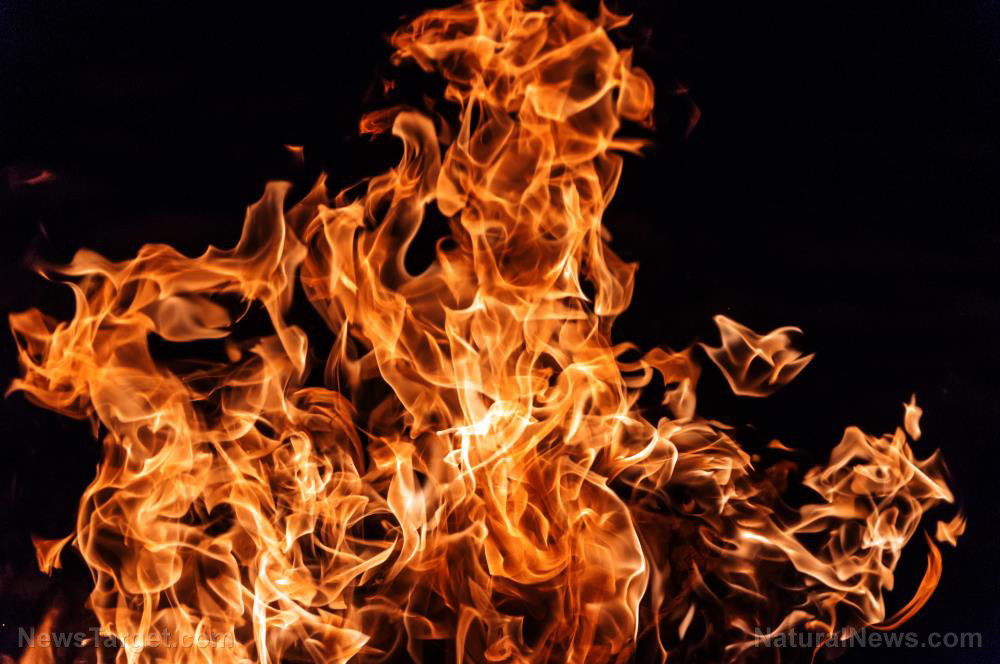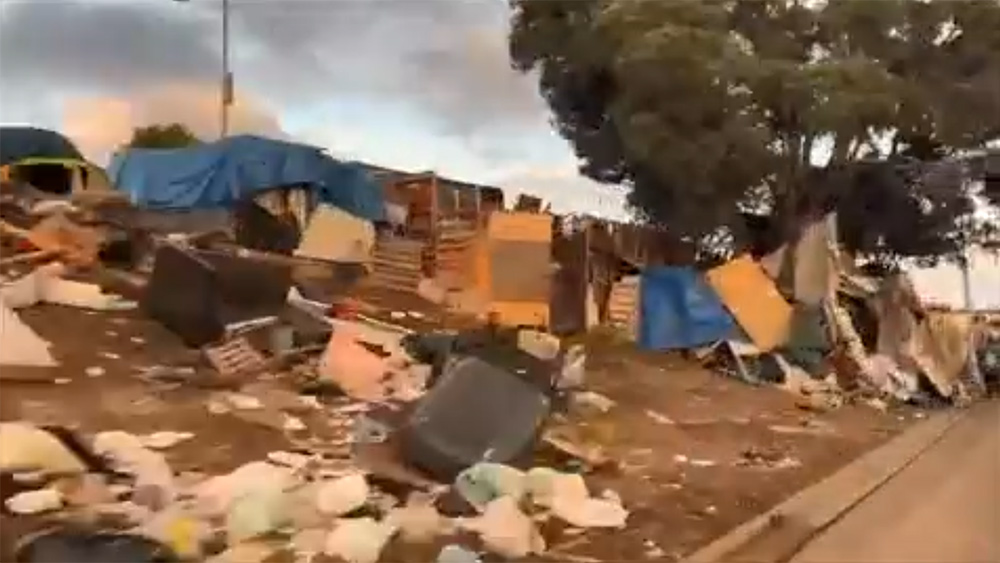Smokehouse Creek Fire KILLS over 10,000 cattle in Texas, devastating local beef supply
03/08/2024 / By Ava Grace

The Texas Department of Agriculture estimates that over 10,000 cattle have been killed by wildfires that recently ravaged the Texas Panhandle and neighboring areas.
The Smokehouse Creek Fire, as it is called, is the largest wildfire in the history of Texas. It has burned down at least 500 structures and 1,700 square miles in Texas and Oklahoma.
One of the people affected by the fire is Shane Pennigton, a 56-year-old cattle farmer near Canadian, Texas. When he first saw flames from an enormous wildfire approaching the ranch he manages, his first concern wasn’t his home. It was his animals.
Pennington said when he got to his ranch, he found around 50 of his cattle already dead and many nursing cows were desperately searching for their lost calves. As the flames tore through the ranch, they caused excruciating injuries, burning off some animals’ tails and rendering others blind.
“It just burned all the hair off them,” he said. “Their feet are coming off. Their hooves, they’re bloody.”
Some of them are “cows that I raised right here,” he said. “It’s just hard to see them burn up.” (Related: Another blow to the food supply: Explosion and subsequent fire devastate Texas chicken plant.)
Pennington is one of many cattle farmers whose livelihoods have been devastated by the Smokehouse Creek Fire. Many more farmers have been affected by the disaster, which is likely going to harm the supply of beef for a few years as ranchers try to rebuild.
Texas is home to about 4.1 million beef cattle, according to David P. Anderson, professor of agricultural economics at Texas A&M University. Agriculture Commissioner Sid Miller noted that more than 85 percent of the cattle in Texas are housed in the Texas Panhandle.
Miller added in a press release that in addition to the thousands of animals that have died, many grain and seed operations have also “reported total losses.” Farmers and agricultural experts say the wildfire will continue to affect the cattle industry for years to come.
More cattle likely to die in coming weeks
In addition to the short-term effects of cattle killed and grievously injured by the flames, there will be lasting repercussions, as herds cultivated for years struggle to recover and traumatized cows fail to reproduce. Miller has called for donations and prayers to be provided to Texas residents who have lost their homes and livestock in the wildfires.
“There’s no grass, there’s no water for the livestock,” Miller stressed. “We’ve lost over 3,000 head, which is a very small number, that will double or triple easily. We’ve got cattle that we’re going to have to euthanize because of the damage to their hooves, their udders. We’ll just have to put them down.”
For Pennington, the inferno has been both financially and emotionally catastrophic. “Your job is to keep them alive, not to destroy them,” he said. “It’s tough.”
“Even if [the cattle] survive in [the wildfire], more than likely they’re gonna get pneumonia, they’re gonna get sick, they’re gonna die,” Pennington added, strongly suggesting that the estimate of 10,000 dead cattle will rise.
“There are literally hundreds of structures burned to the ground – houses, barns,” said Rep. Ronny Jackson (R-Amarillo), whose congressional district covers most of the Texas Panhandle. “There are dead animals everywhere – cattle, horses. Unfortunately, there are many animals that are seriously burned, that aren’t dead yet, that will have to be put down.”
Watch this video discussing how the Smokehouse Creek Fire is threatening a nearby nuclear weapons plant.
This video is from Justin Barclay on Brighteon.com.
More related stories:
Largest wildfire in Texas burns approximately 1,700 square miles and 500 structures (and counting).
Grocery stores are LEAVING crime-ridden U.S. cities in droves, creating “food deserts.”
Sources include:
Submit a correction >>
Tagged Under:
agriculture, beef, beef supply, cattle, chaos, Collapse, disaster, Ecology, environment, fire, food collapse, food rationing, food scarcity, food supply, hunger, livestock, panic, Sid Miller, Smokehouse Creek Fire, starvation, supply chain, Texas, Texas Panhandle, wildfires
This article may contain statements that reflect the opinion of the author
RECENT NEWS & ARTICLES
COPYRIGHT © 2017 DISASTER NEWS




















